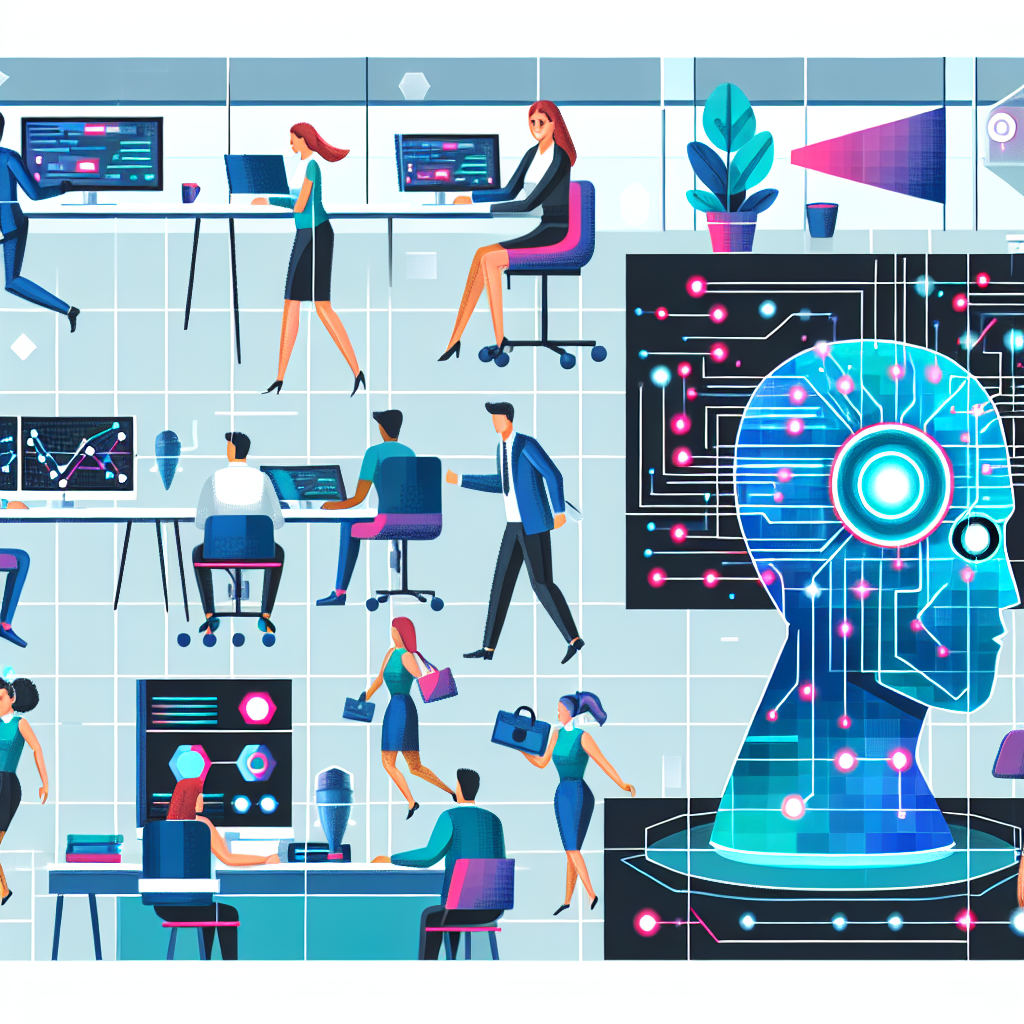How Generative AI Enhances Job Roles and Fosters Creativity in the Workplace

“We need to establish ways to bring the best out of machines and humans working together, rather than focusing on how one can outperform the other.”
Reckitt CMO: AI is already making marketers better and faster
Examining the potential of generative AI in the workplace
The article posits that generative AI (GenAI) offers substantial benefits to human roles, extending beyond fears of job displacement. Instead, it highlights how GenAI can automate repetitive tasks, allowing employees to focus on creativity and strategic planning.
Supporting evidence and implementation
Evidence from a Boston Consulting Group survey reveals that AI-assisted employees are not only 25% faster but also produce higher quality work by 40%. At Reckitt, GenAI is employed for one-third of marketing tasks, freeing up time for more strategic pursuits.
Innovations in product development
Reckitt’s pilot projects demonstrate that GenAI can cut concept development time by up to 60%, leading to significant quality improvements. Furthermore, GenAI’s ability to adapt marketing assets for different regions resulted in a 30% time reduction and increased consistency in asset quality.
Future-proofing workforce
The article underscores the importance of equipping employees with GenAI skills, enhancing their job security and excitement about future roles. This proactive approach positions employees as valuable assets in tomorrow’s economy.
Contrarian perspectives
Contrary to mainstream fears of AI-induced job loss, the article presents an optimistic view of AI as a tool for job enrichment. This perspective is supported by evidence of improved efficiency and job satisfaction within companies like Reckitt.
Critical analysis
Strengths of the article include evidence-based claims and a balanced perspective on AI’s role in augmenting human abilities. However, it lacks a thorough exploration of potential challenges such as AI bias and the need for extensive retraining programs. Additionally, results from specific case studies may not be universally applicable.
Conclusion
The article convincingly argues for a collaborative relationship between humans and AI, emphasizing mutual enhancement. For a comprehensive understanding, it should address implementation challenges and ensure ethical AI deployment. Embracing GenAI thoughtfully can lead to a more innovative and efficient workforce.
Featured writing
Why customer tools are organized wrong
This article reveals a fundamental flaw in how customer support tools are designed—organizing by interaction type instead of by customer—and explains why this fragmentation wastes time and obscures the full picture you need to help users effectively.
Busy is not a state
We've built work cultures that reward activity, even when nothing actually changes. In technical systems, activity doesn't count—only state change does. This essay explores why "busy" has become the most misleading signal we have, and how focusing on state instead of motion makes work more honest, less draining, and actually productive.
Infrastructure shapes thought
The tools you build determine what kinds of thinking become possible. On infrastructure, friction, and building deliberately for thought rather than just throughput.
Books
The Work of Being (in progress)
A book on AI, judgment, and staying human at work.
The Practice of Work (in progress)
Practical essays on how work actually gets done.
Recent writing
Dev reflection - January 29, 2026
So here's something I've been sitting with. You finish a piece of work. You ship it. Everything looks good. And then production starts teaching you that you weren't actually done.
Dev reflection - January 28, 2026
So here's something I've been sitting with lately. There's this gap—a subtle one—between a system that's running and a system that's actually working. And I don't mean broken versus not broken. I m...
Textorium is live on the App Store
Textorium launches on Mac App Store - a native editor for Hugo, Jekyll & Eleventy that manages hundreds of posts with table views and smart filtering.
Notes and related thinking
Article analysis: 5 Things Content Marketers Shouldn’t Be Afraid of Doing
Boost your content marketing by embracing fears—engage customers, optimize existing content, seek feedback, ensure originality, and collaborate effectively.
Article analysis: Rewriting the Playbook: 5 SaaS Companies Defining the Next Generation of Content Marketing
Discover how five SaaS companies are revolutionizing content marketing with authentic, reader-focused strategies that simplify and engage.
Article analysis: Mastering the Human-AI Balance in Marketing: Insights and Strategies
Master the art of blending AI with human creativity in marketing to drive deeper connections and enhance your team's effectiveness.